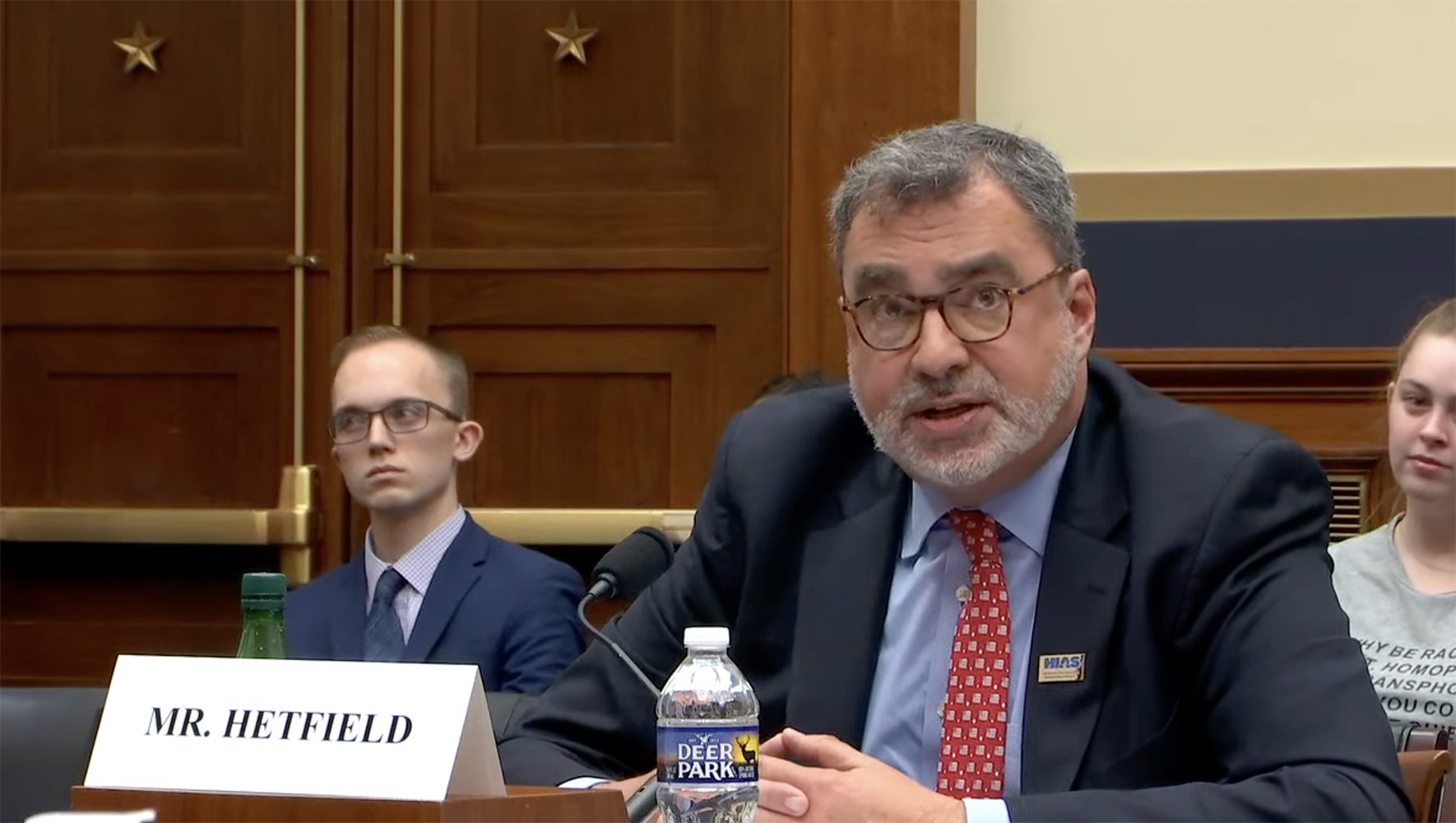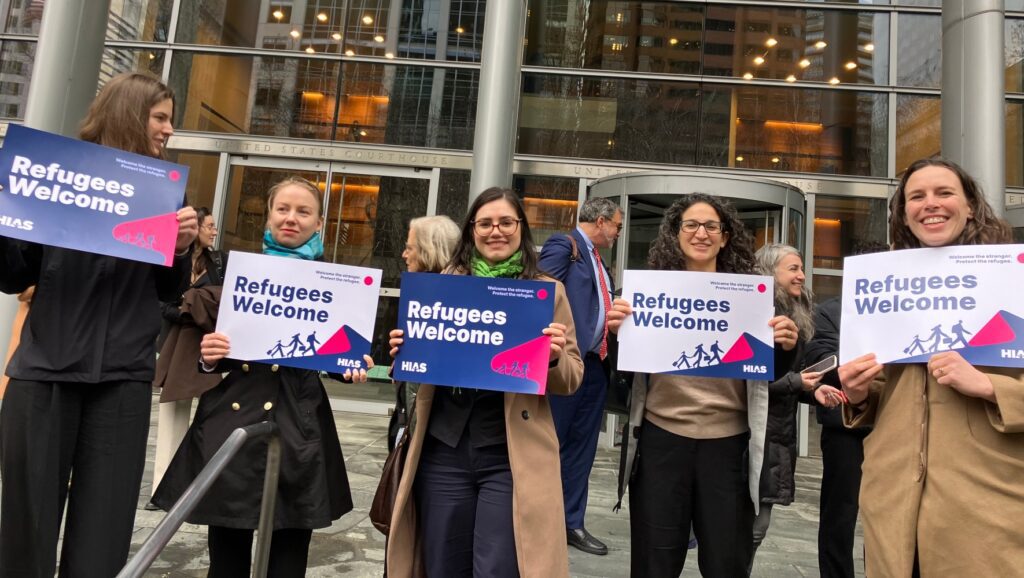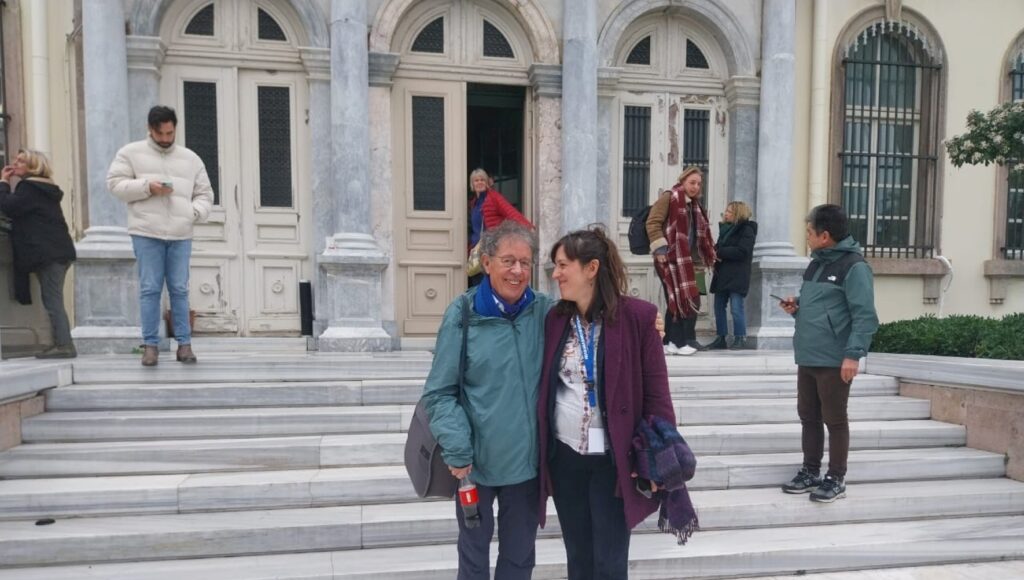In a hearing of the House Subcommittee on Immigration Integrity, Security and Enforcement on Tuesday, HIAS President and CEO Mark Hetfield said that comprehensive immigration reform is the only way to respect the rights of asylum seekers by creating safe, orderly and humane processes, while also meeting demands for border security.
In his testimony, Hetfield cited the “polarization around [the issue of the border],” which, he noted, has led Congress to avoid addressing legal immigration pathways for more than three decades. “The excuse for not doing so is often that we can’t fix legal immigration pathways until we fix the border,” he said. “This is a false choice, ignoring the laws of supply and demand. As long as there are jobs to fill that American citizens cannot do or will not do, the U.S. government will not be able to secure the border.”
The title of the hearing provided more than a hint of what the tone and atmosphere in the room would be like. “The Biden Border Crisis: Part III” was the name of the forum, and its goal, according to the Republican majority’s description, was to “examine the causes and effects of the Biden Administration’s open-borders policies, including illegal aliens overwhelming American communities, criminal aliens harming Americans, and terrorists entering the country in record numbers.”
Hetfield, the only guest invited by the Democratic minority, delivered the message that comprehensive immigration reform is the only way to respect the rights of asylum seekers by creating safe, orderly, and humane processes, while also meeting demands for border security.
Hetfield pointed out that the asylum backlog has reached 1.3 million pending applications, an unprecedented figure. This backlog has created a situation where many people who are not legally entitled to protection remain in the U.S. for years before being sent back to their home countries.
“As long as the government continues to invest in immigration enforcement officers without investing in immigration judges and asylum officers and in a more fair and efficient asylum system, the U.S. government will not be able to secure the border,” he said.
“As long as the government continues to invest in immigration enforcement officers without investing in immigration judges and asylum officers and in a more fair and efficient asylum system, the U.S. government will not be able to secure the border."Mark Hetfield
Hetfield called for additional resources at the border and within the asylum system, but added that “those resources cannot be solely focused on apprehension, removal and detention or on removal without a screening.” This was a reference to new border restrictions the Biden administration implemented since the May 11th lifting of Title 42 — the World War II-era public health measure used as a pretext for 2.8 million expulsions of asylum seekers since it was invoked in March of 2020.
“The administration should not replace one legal fiction — barring asylum seekers on health grounds — with others, barring them because they did not go through asylum systems that are even more dysfunctional than our own. Instead, he said, “government agencies and lawmakers should promote the fair and efficient adjudication of asylum claims, with legal counseling and measures to ensure that Customs and Border Protection follow the law and DHS procedures to ensure that no one is sent back into harm’s way.”
During the question-and-answer period that followed witness testimony, Rep. Barry Moore (R-AL) asked Hetfield if he is alarmed by reports that officials are “just turning [asylum seekers] loose” in communities around the country “with very little background checks.” “I find it very alarming,” Hetfield replied, “that people are getting lost in the system waiting for years to get an asylum hearing. That doesn’t work for anybody.”
Hetfield pushed back further against the narrative of “criminal aliens harming Americans” during an exchange with Rep. Eric Swalwell (D-CA). “People are not coming here to bring fentanyl and to kill people. They’re coming here primarily to work, and to seek protection. And we need a system that actually identifies the people that are coming here for legitimate purposes and to give them legal pathways to do that, and to identify the bad actors. But we don’t have that right now. Our system is totally out of control because we have not resourced it. We need legal pathways so that people can take jobs that American citizens are not willing to take. And there has been no movement in that area in decades,” he said.
Hetfield also sought to establish the international context to refugee flows, countering the perception that the United States is bearing a unique burden. The U.S is “just one player in this global refugee crisis,” he said in an exchange with Rep. Primila Jayapal (D-WA).“Colombia alone, which was traditionally a refugee-producing country, is now taking in refugees. Over 2.5 million Venezuelans have sought refuge in Colombia, where HIAS operates. Likewise, over 1.5 million in Peru, over half a million in Ecuador, and nearly half a million in Chile [have sought refuge]. This really requires international attention, and the U.S. has to lead on this issue.”
Hetfield told Jayapal that HIAS supports the Biden administration’s plans to increase resettlement and reduce dangerous journeys to the border by opening Regional Processing Centers around the Western Hemisphere, first in Guatemala and Colombia and later in Mexico. “This is definitely a step in the right direction, so I hope those centers are resourced so applications can be processed expeditiously and fairly.”
Watch the complete hearing, including all testimony, questions and answers.




